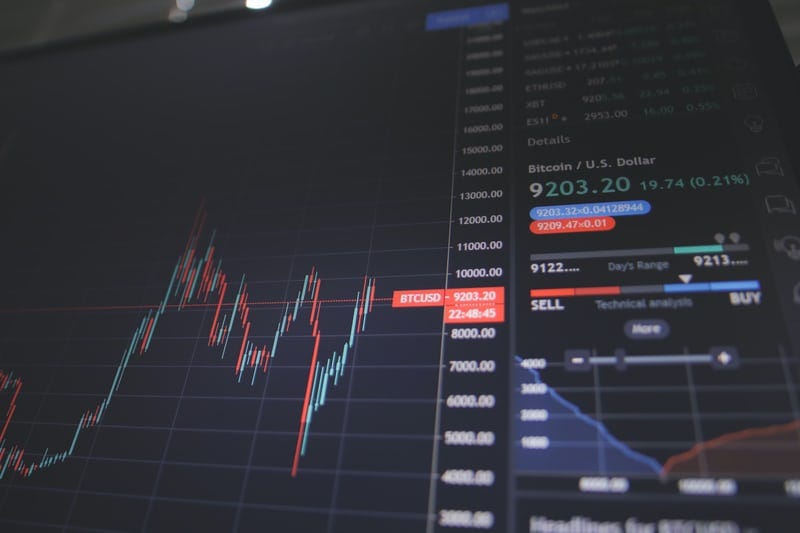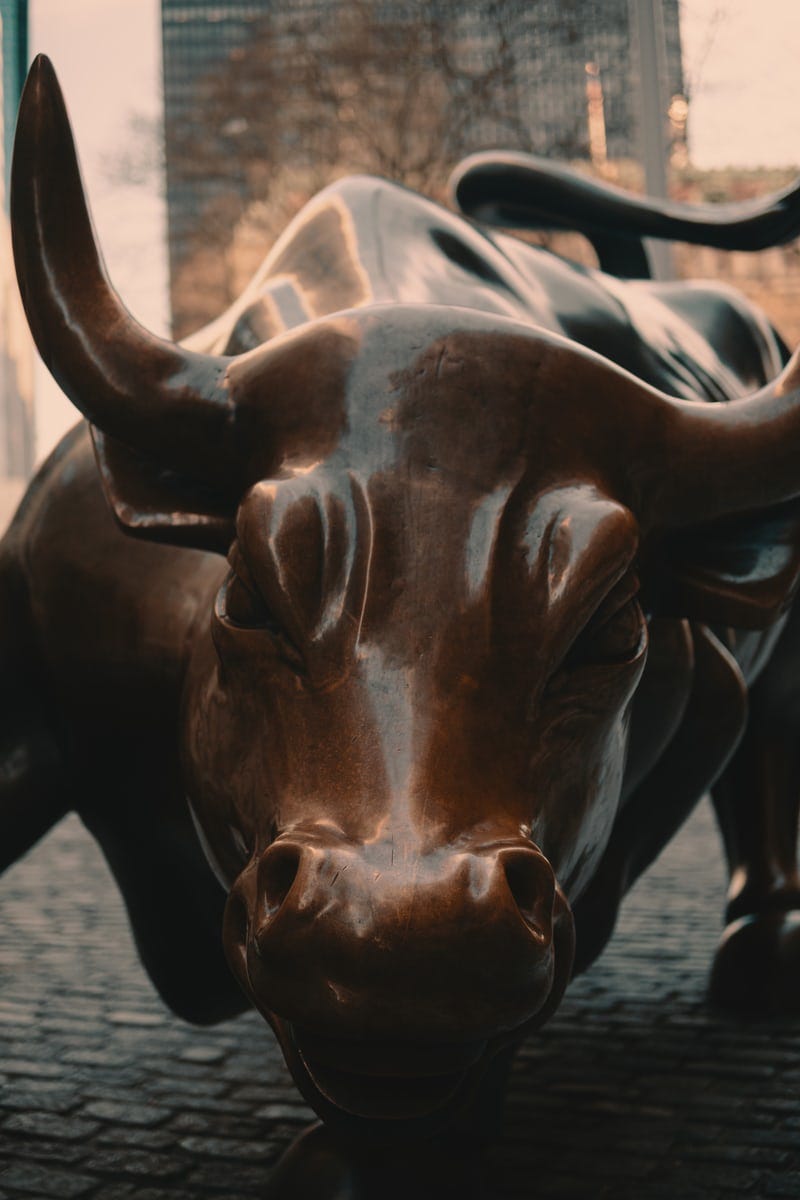The best investment advice I’ve ever heard is to ‘buy the dip’.
Only if people knew that wouldn’t investing be so easy?
Well, not exactly.
Most people don’t know you can still loose money in a bull market. In fact, most investors loose money while passive investors have historically beat out active investors as individual stock picking continues to pitfall.
Buying low and selling high is part of the ‘dip’ philosophy. It sounds easy and should be but the only problem is we don’t know how to justify if a company is overpriced or has a great value.
Traditionally most traders and analysts would compile graphs, financial models such as LBOs or DCFs, have a whole fancy setup with their Bloomberg Terminal to compute if the trade is trading at a premium or a discount but that still usually doesn’t work!
In the stock market, 70–80% of investors are institutional investors meaning hedge funds to college endowments and pension funds which are very conservative by nature. Majority of their holdings consist of international foreign stocks, structured notes and corporate treasury bonds not individualized hot picks that retail traders, roughly 20% of traders choose.
That’s the scary and beauty about trading. You could’ve easily made more money as a Reddit trading gambler these past few months wasting time not knowing anything fiddling on Robinhood or WeBull than any institutional CFA/CPA investor with 60 years of experience.
The point is, none of us have a crystal ball and can predict the future and with this crazy frothy exuberant and overpriced market with stocks ranging from Tesla to BitCoin that aren’t regulated and trading at evaluations to the moon, it’s difficult to be a part of this process that was once reserved solely for the white men in America who worked on Wall Street.
You can learn about the evolution of trading here.
So is there ever a right time? Well there is a right time to buy a home, borrow money and take advantage of great deals at the store so investing must go hand in hand because after all, the economy controls everything.

Tracker
The best time to take out a mortgage on a home, student loans or pay either of them off is during a low interest rate environment. This is when bonds are expensive and yields are lower making them attractive. The Fed buys bonds (buy-backs) to keep bonds at high prices in order for interest rates to be lower. Although its cheaper, the yield (return) is lower as well.
Bonds and yields have an inverse relationship.
During a recession to economic collapse, you name it, the Fed is on our side and wants to help Americans as much as they can so they boost money into the economy to lower unemployment and inflation. This leads to a buying spree as we’ve witnessed with Millenails with spending their stimulus on Robinhood and a possible housing bubble as investors is low and demand is sky high.
Buying low selling high means you get the best bang for your buck. In March of 2020 when the leisure, hospitality and tourism space were defeated along with Main Street, this lead to uncertainty and hence the stock market collapsed.
Yet since the stock market is trading a few months down the line in the future, the future was looking bright as herd immunity would be reached towards the end of the year along with a possible vaccine, massive wealth was created in the health-care, technology, decentralized finance/cryptocurrency space, real estate and media which drove up evaluations, banks were lending like crazy during this low-interest rate environment and lastly along with the push for stimulus, this led investors to buy even more stocks.
Stimulus this time is being pushed into consumer’s pockets instead of the banks’ which happened during the ’08 Housing Crisis when banks went underwater for selling mortgages (loans on homes) to people who couldn’t pay them back.
When it’s attractive to borrow as interest rates are low and bonds are high, less are stocks. When interest rates are rising, both businesses and consumers will cut back on spending. This will cause earnings to fall and stock prices to drop. On the other hand, when interest rates have fallen significantly, consumers and businesses will increase spending, causing stock prices to rise. Banks specifically profit off of the rise in interest rates as there is higher yield and more returns yet they still have to fund operations.
Higher interest rates tend to negatively affect earnings and stock prices (with the exception of the financial sector) leading to a sell-off as equities are become more attractive than bonds.
As we reach herd immunity, consumers still have to pay their bills. When those bills become more expensive, households are left with less disposable income. When consumers have less discretionary spending money, businesses’ revenues and profits decrease.
When the economy is slowing, the Federal Reserve cuts the Federal Funds Rate (FFR) to stimulate financial activity. A decrease in interest rates by the Federal Reserve has the opposite effect of a rate hike. Investors and economists alike view lower interest rates as catalysts for growth — a benefit to personal and corporate borrowing. This, in turn, leads to greater profits and a robust economy.
When interest rates rise this leads companies to become less profitable through higher debt expenses or less revenue as they have less customers taking advantage of lower interest rates, stimulus and low inflation so the estimated amount of future cash flows will drop leading to the lower the price of the company’s stock.
Although the relationship between interest rates and the stock market is random, the two tend to move in opposite directions. When the Federal Reserve cuts interest rates, it causes the stock market to go up; when the Federal Reserve raises interest rates, it causes the stock market to go down. But there is no guarantee because the market is unpredictable.

Time It Off
How can you resist the allure of potentially dangerous “investments” such as GameStop, AMC or BlackBerry?
It’s important to think ahead and not treat the stock market like a casino or game.
Understanding what you need the money for and how you value your time is key. Passive investing is the best way towards consistent gains overtime with less work and less accrued expenses.
Active investing is intended to beat out the market but rarely happens with more work, headaches, lost energy and wasted money.
Regular trading begins at 9:30 a.m. ET and ends at 4 p.m ET. 10:30 a.m. ET is often the best trading time of the day. It offers the biggest moves in the shortest amount of time. If you want another hour of trading, you can extend your session to 11:30 a.m. ET.
Many professional day traders stop trading around 11:30 a.m. because that’s when volatility and volume tend to taper off. Trades take longer, and moves are smaller on lower volume — not a good combo for day trading.
Many day traders also trade the last hour of the day, from 3:00 to 4:00 p.m. ET.
Monday afternoon is usually a good time to buy because the market historically tends to drop at the beginning of the week, particularly around the middle of the month.
Many experts recommend selling on Friday before that Monday dip occurs, particularly if that Friday is the first day of a new month or when it precedes a three-day weekend.

Future Timing
Timing the market isn’t only above active investing. Planning for your goals and what you want your life to look like based on your withdraws and contributions while diligently saving is also part of the plan.
Here are some examples of timing when it comes to investing that are much less hands on and require a long term approach:
-Setting up your 529C for your child
-Maxing out your 401(k) and other pre-tax retirement accounts
-Taking out loans-short and long term goals, wedding, buying a house, taking out a mortgage, etc.
-Deciding to get a severance
-Sell your rental property because tenants moved
-Snooping into bitcoin and the highest performing assets classes of real estate, decentralized finance (crypto), NFTs, health care and telecommunications

The problem with the stock market is that despite great gains, any losses feel worse.
There’s a saying that the stock market can remain irrational longer than you can remain solvent. In other words, Disney stock could go up another 80%, but in the meantime, it could correct by 90% and cause you to sell at the lows.
Keeping your options open, staying long term and understanding the dangers of timing the market within active trading is key.
Repeat after me:
-Hard work doesn’t always pay off
-Monkeys throwing darts can choose better stocks
-You can easily loose money in a bull market
-Losses always weigh more than gains
Having a set proportion of your net worth in the stock market is key to be an inflation hedge, take part in earnings as a shareholder, let companies work for you and let your money grow in your sleep.
If you know how to plan for uncertainty and what timing involves, you’ll be able to conquer anything.

